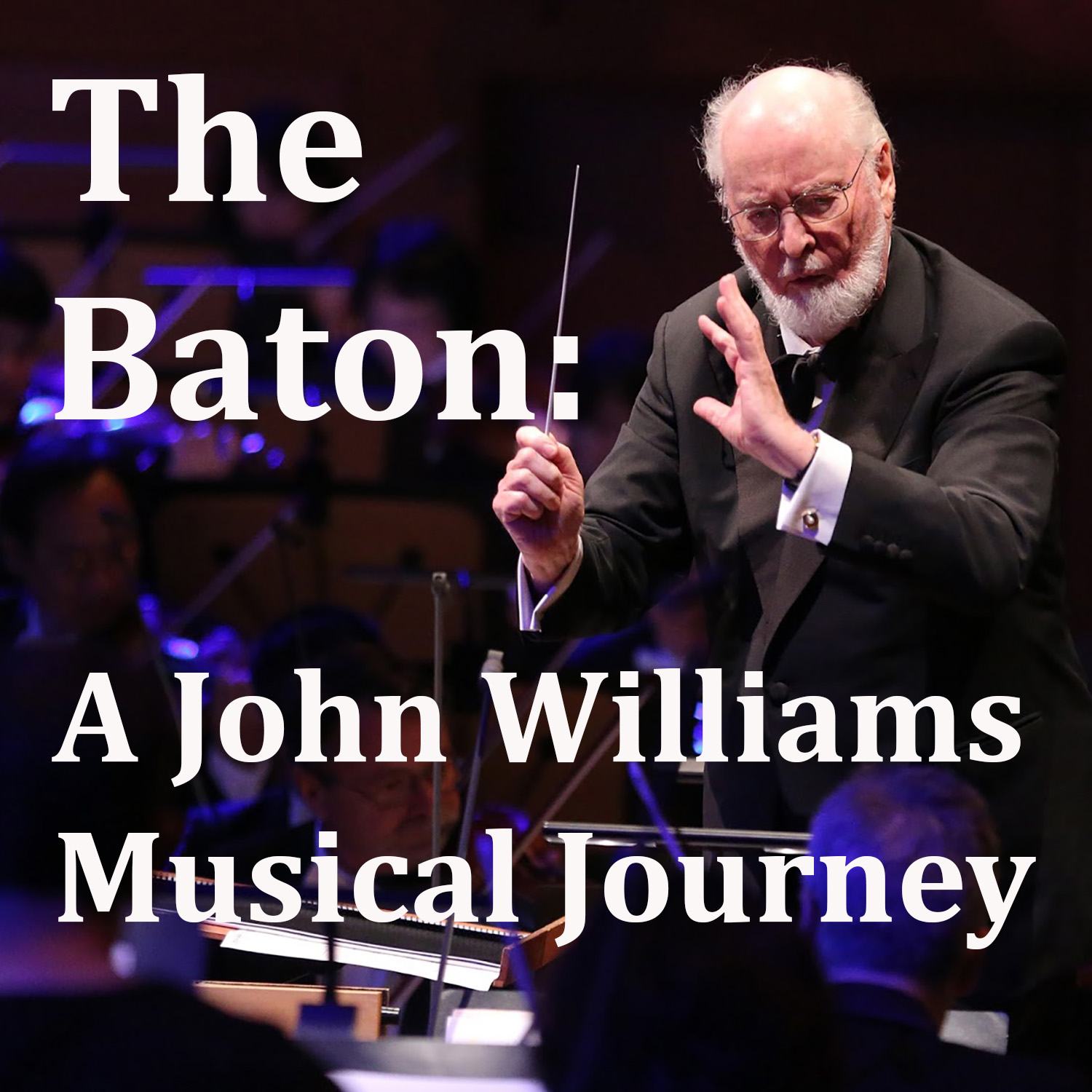Episodes
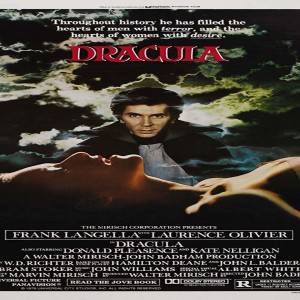
Wednesday Nov 27, 2019
Episode 51 - Dracula
Wednesday Nov 27, 2019
Wednesday Nov 27, 2019
John Williams' final foray into the horror genre was the 1979 version of "Dracula," with Frank Langella reprising his Broadway role to great effect. The movie goes for romantic overtones instead of outright horror and gore, though there is some of that there. And John Williams was willing to go along for the ride with lush strings and woodwinds from the London Symphony Orchestra taking center stage. Host Jeff Commings talks about this final collaboration between Williams and film producer Walter Mirisch, including the lush main theme that served mainly as a love theme.
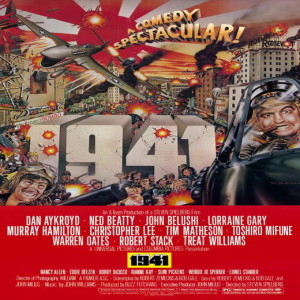
Wednesday Dec 04, 2019
Episode 52 - 1941
Wednesday Dec 04, 2019
Wednesday Dec 04, 2019
Was Steven Spielberg's "1941" an elaborate prank to see how far he could go with making movies, or did he really set out to make a genuine comedy? It appears to be the latter, though there are not many laughs to be had in this disjointed film set one week after the Pearl Harbor bombing. Spielberg was not the only culprit for this misaligned film. Host Jeff Commings gives a little history on the collaboration between screenwriters Robert Zemeckis and Bob Gale, and gives a possible reason why Spielberg made this his follow-up to "Close Encounters of the Third Kind." John Williams came along for the ride as well, and came out largely unscathed thanks to a march-style theme for John Belushi's character that has become more popular than the film. But the numerous re-edits meant a major butchering of Williams' score to the point that parts are disjointed.
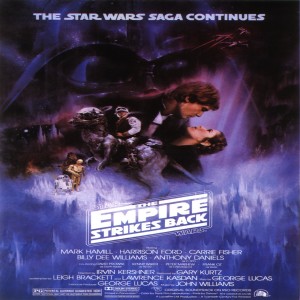
Wednesday Dec 11, 2019
Episode 53 - The Empire Strikes Back
Wednesday Dec 11, 2019
Wednesday Dec 11, 2019
Host Jeff Commings counts John Williams' score to "The Empire Strikes Back" as his all-time favorite, as does guest co-host Jim Nova. The two analyze the amazing Imperial March and its chord progression that gives it a sinister tone. They also talk about the amazing love theme and the music written for Jedi Master Yoda. Among their favorite scenes in the film is the chase through the asteroid field, comprising some of Williams' best music. That four minutes alone should have won Williams the Academy Award for Original Score, a sore point that Commings and Nova touch on in this episode. And do you think "The Empire Strikes Back" would make a great musical? We explore that possibility on this episode as well.
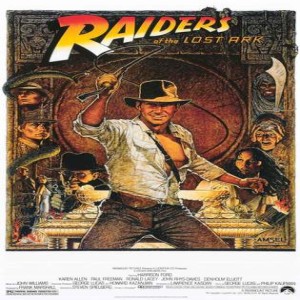
Wednesday Dec 18, 2019
Episode 54 - Raiders of the Lost Ark
Wednesday Dec 18, 2019
Wednesday Dec 18, 2019
Of all the big decisions Steven Spielberg and George Lucas had to make on their first film collaboration, "Raiders of the Lost Ark," picking John Williams as composer was probably the easiest one. Williams was likely the only crew member who had worked with both Spielberg and Lucas, and gave us another timeless score that perfectly encapuslates the personalist of archaeologist Indiana Jones. Host Jeff Commings analyzes Williams' composition of the main theme, and why it doesn't exactly follow the same pattern as his previous marches. Also part of the discussion are the fantastic scenes involving a kidnapping and an extended chase sequence in the desert. Get over your fear of snakes and join us for this epic ride!
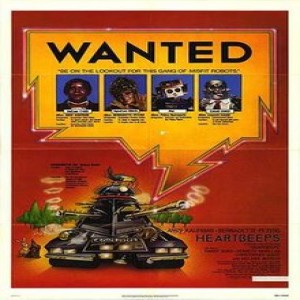
Wednesday Dec 25, 2019
Episode 55 - Heartbeeps
Wednesday Dec 25, 2019
Wednesday Dec 25, 2019
We're closing out the first year of "The Baton" with another of John Williams' lesser-known works. "Heartbeeps" was a massive flop at the box office, but has some charms that were greatly helped by John Williams' music. The Maestro experimented with heavy use of synthesizers and keyboards, and also used a much smaller orchestra compared to his previous two films. The result is a love theme that has some tenderness when played on strings, or on keyboards. There's also a theme for the "villain," a robot named Crimebuster which is the big downfall of the film. Williams does write an interesting theme for Crimebuster, and host Jeff Commings wonders if this is what Williams might have written for Darth Vader if the Star Wars series was a comedy.
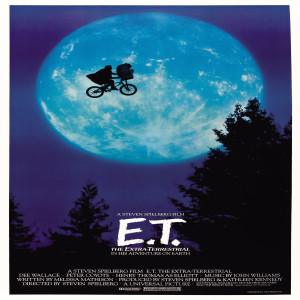
Wednesday Jan 01, 2020
Episode 56 - E.T. The Extra-Terrestrial
Wednesday Jan 01, 2020
Wednesday Jan 01, 2020
Year Two of "The Baton" is here! And there is no better way to kick off the second half of this journey through John Williams' film career than with a discussion of "E.T. The Extra-Terrestrial." Host Jeff Commings counts this score as his second-favorite, and believes the final 15 minutes of music is the most perfect composition ever created. David Kay joins this episode to break down the multiple themes composed for the film, and the melodic interval they all have in common. And, did you know that John Williams was sued for copyright infringement over the flying theme? We'll tell you all about it on this episode.
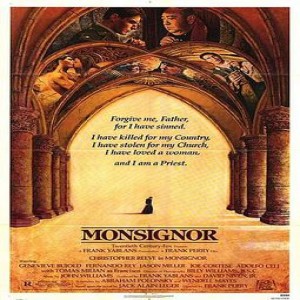
Wednesday Jan 01, 2020
Episode 57 - Monsignor
Wednesday Jan 01, 2020
Wednesday Jan 01, 2020
The 1982 film "Monsignor" is the first straight drama containing a John Williams score in eight years. Besides what host Jeff Commings calls "the most depressing love theme John Williams has ever written," the Maestro wrote a bold piece for organ and choir to accompany the film's major climactic scene. The film features just 30 minutes of music, probably due to the limited time Williams had to compose the score outside of his work on "ET," his summer conducting the Boston Pops and the beginning of his work on "Return of the Jedi." The score is notable for being nominated for a Golden Raspberry Award that picks the worst in film. And, we also discuss the song Williams wrote for Luciano Pavarotti for the film "Yes, Giorgio" that earned him another Original Song Oscar nomination the same year he won for scoring "ET."
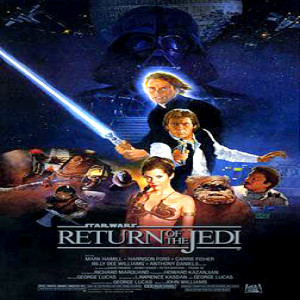
Wednesday Jan 08, 2020
Episode 58 - Return of the Jedi
Wednesday Jan 08, 2020
Wednesday Jan 08, 2020
The schedule to compose and record the score for "Return of the Jedi" was pushed up about a month, leaving John Williams with much less time to draft music to close out the original trilogy. The delays on finishing visual effects meant Williams couldn't get the full finished film at once, only about 30 minutes at a time. The rushed process near the end is evident in the music for the final 30 minutes or so, with jarring edits all over the place. Despite that, Williams did some great work on this film, including the creation of the Ewok theme that host Jeff Commings believes is a cousin of an existing theme in the Star Wars universe. He also discusses the music for the Emperor and its use of that "horror chord" to suggest pure evil. Plus, he makes an interesting discovery about the music for the final lightsaber battle. And John Williams got to work with son Joseph for the first time, as father and son created two songs for the original version. Hop onto your speeder and join us for this fun ride through this score!
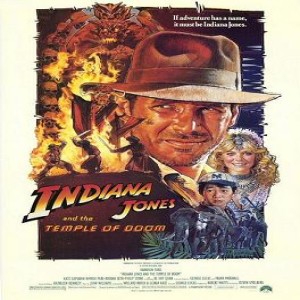
Wednesday Jan 15, 2020
Episode 59 - Indiana Jones and the Temple of Doom
Wednesday Jan 15, 2020
Wednesday Jan 15, 2020
Steven Spielberg has essentially disowned his work on "Indiana Jones and the Temple of Doom," but host Jeff Commings and guest co-host Erik Woods are here to convince you of the marvels within the film and the score. From the wonderful renditions of the Raiders March to the heroic melodies for the slave children and Short Round, there's plenty to appreciate about the score. We'll also talk about that cute throwback (or, since this is a prequel, a "throw-forward") to the sword trick fight from "Raiders of the Lost Ark" and how the film influenced a completely new ratings system. Brush up on your Sanskrit and watch out for crocodiles as we take a journey into the Temple of Doom!
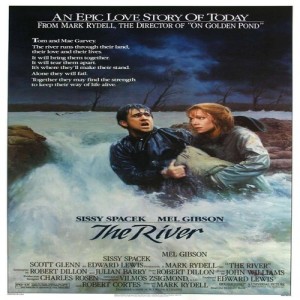
Wednesday Jan 22, 2020
Episode 60 - The River
Wednesday Jan 22, 2020
Wednesday Jan 22, 2020
Probably the least stressful thing for John Williams in 1984 was composing the score to "The River," which reunited him with director Mark Rydell for the fourth and final time. Williams employed the talents of longtime collaborator Tommy Tedesco for the score's wonderful guitar solos, and created an Oscar-nominated score light years from the work he had done on his previous two films. The work kept his mind off the drama that unfolded earlier in the summer when he abruptly resigned as conductor of the Boston Pops Orchestra over reactions from musicians. And after working on "The River," Williams found himself quite busy in 1985 though he had zero film commitments that year. Host Jeff Commings talks about the story behind Quincy Jones taking over as composer on "The Color Purple," Williams' return to television and the concerto he composed for the Boston Pops after the relationship was rekindled.

